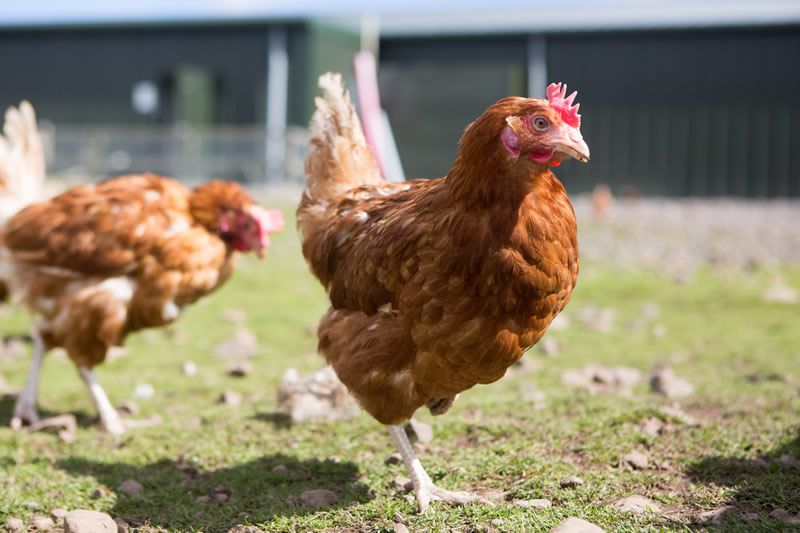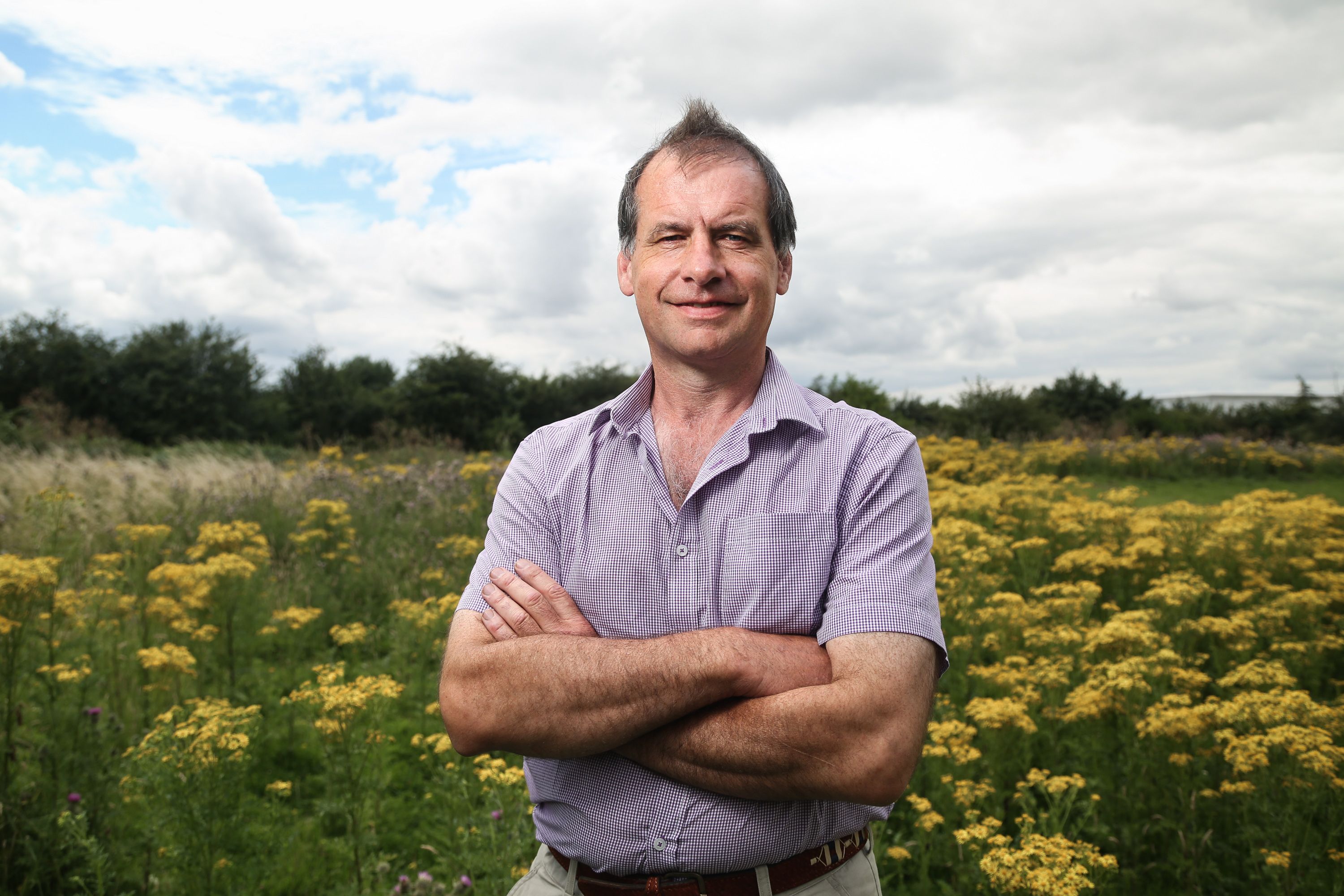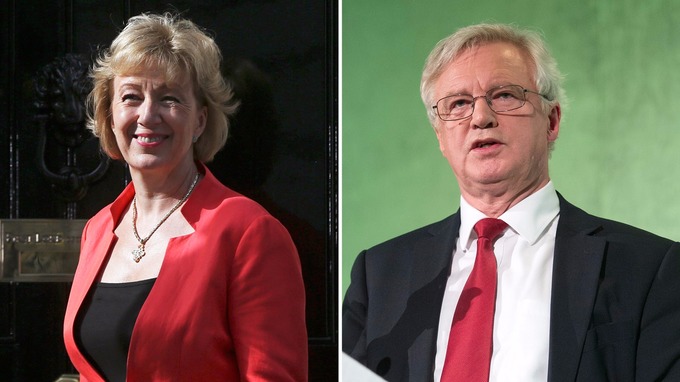
Brexit is already affecting free range egg producers, with the falling value of Sterling increasing the price of feed, says the British Free Range Egg Producers Association (BFREPA).
Robert Gooch, chief executive of BFREPA, told FarmingUK that the long-term impact of leaving the European Union would depend on what future agreement the United Kingdom was able to negotiate with the remaining members of the EU.
However, he said that the fall in the pound that followed the surprise referendum decision to leave the EU had increased the cost of imports, including key ingredients like soya.
"Because we rely so much on imported soya, the weaker Sterling will and has started to lead to an increase in feed prices," said Robert.
"It will help exports but, as free range egg producers, the export market isn’t significant for us.
"So, if you like, there is a net deficit from the weakness of Sterling in terms of how it affects our margin as free range producers. That’s a concern.
"As we carry on, that weak Sterling might just be an economic shock from the news of Brexit and, hopefully, currency will stabilise a bit," said Robert, but he said there were other concerns long term about what the UK’s relationship would be with the EU in the years ahead
Extra transaction costs

"The other factor looking longer term is that, if we are going to be out of the EU and out of the single market, there will be extra transaction costs from dealing with customs tariffs and border controls, which will lead to increases in prices for those imports as well on top of any currency impacts.
"So the net impact, it looks like it will be negative for feed in terms of reducing our margins with higher feeds costs."
Robert Gooch has a detailed knowledge of the European Union and its agricultural policies, having worked in Bruseels as a consultant before taking up his position with BFREPA.
Robert spent 10 years in Brussels, where his Eurinco consultancy worked mainly on Common Agricultural Policy issues for clients in the United Kingdom.
He said that the long term implications of exiting the EU for free range egg producers and others in the farming industry would depend on forthcoming negotiations.
"There are two scenarios that will determine what the impacts will be. We can’t say now exactly what’s going to happen.

"The first scenario is that the UK negotiates to go into the single market as it currently stands, rather like the Norwegians and the Icelandics have done.
"They have access to the single market but they have to allow, under the agreements they have, free movement of labour and capital to have that."
Borders over single market
Robert said that the new Defra Secretary, Andrea Leadsom, and the man appointed to lead the UK’s negotiations with the EU – Secretary of State for Brexit David Davis, had indicated that they would prefer the UK to have control over its own borders if it was a choice between that and membership of the single European market.
"If there is that choice, then that has bigger implications than if we went into the EU single market rules as they currently stand," said Robert.
He said that another area of uncertainty was when negotiations would begin over the UK’s new relationship with the EU.
Once Article 50 is triggered to give notice to leave the European Union, there is a period of two years during which exit terms are negotiated before the UK actually leaves.
But the EU is insisting that those negotiations will cover exit terms only and not what the UK’s future relationship with the EU will be.
"The EU says you can’t do that; you have to exit first, then start negotiations for the new deal, the new arrangement.
"If that happens it could be five, seven, eight years before we know what the new arrangement will be.
"In the meantime we will be on the WTO default position of tariffs. So the implications are really hard for me to tell you here and now."
Robert said it was not yet clear when Article 50 would be invoked by the UK.
"The latest forecast is early next year. Then we have to go forward for two years. We will be in the EU with the current EU rules for another two years at least.
"Then the question is what happens after that. Regardless of what we want, if there isn’t a new arrangement fixed we will be onto the normal WTO rules – default rules – with a common tariff."
'Cruical and challenging time'
The National Farmers Union (NFU) are also planning a series of meetings with members over the coming months before the union’s annual conference in the autumn.
A meeting has been organised for poultry members at Stoneleigh on September 8.
The NFU’s chief poultry adviser, Gary Ford, said in announcing the meeting: "I think it would be a good opportunity to open up the meeting and involve all stakeholders in the poultry sector so that we, as a poultry industry, can discuss and agree a joint industry position on key points.
"Consequently we have invited to the meeting other stakeholders such as the British Egg Industry Council, the British Poultry Council, the British Free Range Egg Producers Association, as well as the British Poultry Veterinary Association and retailers."
"We are entering a crucial and challenging time for our industry but also one of opportunity.
"We need to be clear what our members’ priorities are over the coming weeks and months so that we are well placed to lobby government on what we, the British poultry industry, want both in the forthcoming trade negotiations and in a UK agricultural policy."
